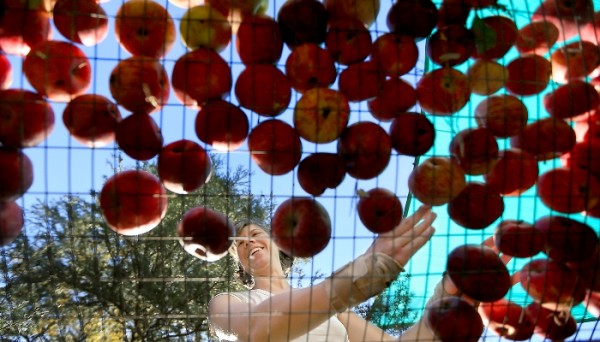Once in a while, reporters just have to admit what they don’t know.
In a story out this morning, we explore a peculiar little bill that zipped through the California legislature earlier this year and was signed into law by the governor. It makes a change to the state’s liquor licensing to allow large brewers to make cider without applying for a separate license, despite the fact that cider is defined as wine in both state and federal law.
The genesis of the bill was reasonably easy to determine – Anheuser-Busch cheerfully admits it was behind the bill. The company wants to use its huge plant in the LA area to make cider, sparing it the expense of trucking the stuff to the West Coast from facilities elsewhere. They would rather not have to go through the hassle of getting a winemakers license (known as Type 02, as opposed to the Type 01 license for larger brewers). Who could blame them?
But that’s where the easy answers ended. The sponsor’s staff was pleasant but not always very specific about why their boss sponsored the bill – the AB brewery isn’t even in his district, but it is at least nearby. Nobody seemed to be able to explain why the bill applied to big breweries and not small ones – was it an oversight? A deliberate move by somebody to cheat the small guys? The answer varied by who I talked to and there was much pointing of fingers and emphatic denying.
And completely unexplained was why nobody even considered allowing cidermakers the courtesy of being allowed equal privilege to get into the beer market. In fact, they didn’t even get the courtesy of a phone call – not a single cider maker, even at the U.S. Association of Cider Makers, had even heard of the bill until I called them, despite the fact that it has been on the books as a law for three weeks now.
Curiouser and curiouser.
In the end, I had to let the story go with a long section detailing all the things I couldn’t find out by deadline time.
Funny thing is, this isn’t entirely unheard of. I’ve covered both Congress and state legislatures (though not California’s, at least in any depth), and once in a while a bill pops up that seems to have no parents. Or perhaps an amendment finds its way into a bill in the middle of the night seemingly by magic and nobody knows or recalls who might have put it there or why.
Sometimes, of course, this sort of thing really is an accident. Language in a bill seems like a good idea at the time may turn out to have significant unintended consequences, or it might simply be poor wording that gets through the legislative process without anyone really thinking about it. Lawmakers and staff are human, after all, and sometimes we screw up or fail to think things through very well. Lots of that kind of stuff makes it into laws and regulations despite our best efforts to pretend otherwise.
But other times, there really are shadowy forces behind it – a well-placed lobbyist, perhaps, or a canny legislator who would rather keep his or her finger prints off the provision.
Cracking this kind of puzzle as a reporter is difficult and time consuming. With the sad decline in the size of newsrooms, coverage of the state and federal lawmaking process has waned, leaving ever more opportunity for this kind of stealth legislation to zip by with no attention. Simply put, we often don’t have the time or resources to dig as deeply as we used to (And I have to credit maker Ellen Cavalli for doing her own sluething that helped bolster my reporting).
So for the moment, that’s all we know about this odd little cider bill. With any luck, our story this morning will tease out more answers, or spur some kind of action. We’ll see what happens, and I’ll keep you posted.
Know anything about this bill? Call me.
– Sean Scully


 buyer at Fircrest Market in Sebastopol and the administrator of the NorCal Beer Geeks group on Facebook.
buyer at Fircrest Market in Sebastopol and the administrator of the NorCal Beer Geeks group on Facebook.